#may move to a future Theology blog if I make one
Text
15 questions for 15 mutuals ❤

I was tagged by @nell-le (thank you!! ❤❤)

1. Are you named after anyone?
Not actually
2. When was the last time you cried?
I watched a Boston Dynamics video yesterday and swear I had tears in my eyes because of how advanced our technologies become with each passing day 🤧
3. Do you have kids?
No, I don't and don't plan them in the future
4. Do you use sarcasm a lot?
Yes but try hard not to do it in an excessively mean way 😅 I may not be polite sometimes which is a trait I'm working on right now
5. What sports do you play/have you played?
Never played anything. Mostly because of a health issues
6. What’s the first thing you notice about other people?
Dressing preferences! Clothes do not have to be expensive or popular, it just needs to look stylish and organic combined together. The second thing would probably be how the person moves / stand / look at something. I'll get my first impression judging by their movements
7. Eye colour?
Dark brown 💅 Looks almost black most of the time
8. Scary movies or happy endings?
Scary movies with worst possible outcomes! I've had enough happy endings in cinematography 🤧
9. Any special talents?
At age of 12 I was making money by hacking a poorly secured online game. Not so special talent considering that all materials allowing me to use that hacking utility were in public but still. What else? My special talent is to scare everybody with thin pale skin and bulging blue-green veins all around my body 👁👁
10. Where were you born?
The very south outskirts of Russia
11. What are your hobbies?
Besides all computer - related stuff you know from my blog I also enjoy reading (mostly: biographical, ancient history, theology, anthropology, archaeology), draw creatures (since I have Photoshop it's in the past) cooking and visiting places of interest like abandoned (or just ancient) buildings, also libraries, museums and churches
12. Do you have any pets?
I've grown amongst domesticated birds - chickens and ducks (we didn't eat them, so they were way more like a real pets). Had two of them as a pets in childhood (raised in my room like a cat or something 😂) , one is still alive by the way despite how many years have passed
13. How tall are you?
Around 180 cm or 5,9 feet
14. Fave subject in school?
English, Art, Literature
15. Dream job?
Idk? A game designer? A creature concept artist? A lighthouse keeper? A sailor? A scientist? A field archaeologist? A submarine / helicopter pilot? A bodyguard? A defense attorney? -Yes

If you haven't done this ask in your blog yet - this is an invitation! Whoever read this: go and write some about yourself! Tagging is welcomed but not necessary ❤
18 notes
·
View notes
Text
One thing I like about the book of Job is that Job questions God. He’s like “hey God, this isn’t fair! I lost everyone and everything I loved, my body’s aching and broken down and I want to die so, so bad. Do You hate me? Did I do something wrong? I don’t get what I did wrong if I did do anything wrong!!! Why are you letting this happen?!”
And Job gets mad and cries but God allows it and understands it. Compared to other gods of the ancient world, this is an act of mercy.
God shows up and comforts Job (after giving him some perspective)--and so we know that God still loves us even when we are mad and upset and questioning; and that He wants us to find comfort in Him even in those times.
I don't think it means He wants us to be constantly angry at Him, but I think He understands the struggle and He wants us to use that to relate to Him, because He also experiences grief and anger and injustice!
It's like with a dear friend or close family member--you get mad with them when there's a misunderstanding but at the end of the day you don't go to bed angry with them. You talk things out and you cheer each other up and stick together because you love each other and you know it's the right thing to do.
So I think the thing is, Job actually feels safe enough to cry at God, and to hope that God would respond to him.
And Job is willing to accept any answer because he has realized just how powerless he has become in this situation.
And in the end, God defends him from the friends that accused him and mocked him.
<3
#may move to a future Theology blog if I make one#I've just been really into the book of Job#someone make an anime of the Bible I'm begging you#I talked about this with my friends on discord the other day and I thought maybe I should post it#job#book of job#bible#scripture#christianity#bible study#theology#human nature#God's character#God#Jesus Christ
14 notes
·
View notes
Note
sorry to potentially derail,, u know, the actual topic of this blog, but you’re a horse trainer !! that’s so cool, it was my dream job as a kid 💛 can you tell us a bit about it?


you have reached the point at which my two greatest passions in life intersect. one thousand words betide thee
i've always been a horse girl (gender neutral term), i took lessons as a kid for several years until it got too expensive, then volunteered for a while, then started working at camps as barn staff in high school. this summer i'm doing my 6th season as camp barn staff. i thought i was done but this lady was really nice and really wanted me to work there and i have problems saying no to people. however teaching summer camp is not the same as actual horse training and i don't intend to do it forever. i also do french classical dressage (as opposed to modern/competition dressage sorry for sounding pretentious but theyre different), i did 15 months as a working student for that over the pandemic and i'm actually going back there for like a month and a half before the camp starts because they need help and i miss my horse friends.
specifically i am invested in ethical, soft, compassionate, scientifically backed approaches to training and problem solving. also i'm literally two inches away from finally getting my fucking degree in animal science, which is related. i also would like to do internships/working student jobs in eventing and rehabilitation, and there's a place in spain i'm looking at going to as well. so i'm not actually a horse trainer yet, but hopefully that's where i'm headed (unless and until i break my spine at the age of 26 or something and then i will probably just study theology and become a nun)
now i'm going to make this tangentially about god because i never get to talk about the spiritual dimensions of animal training and husbandry but now i am because it IS a good church and one of my favorite things to think about and this is my blog. working with animals can be a deeply spiritual experience if you allow it to be. many people come to it (especially with horses) with the mindset that you must be "dominant" or "#1" or "the alpha" in order for the horse to "respect" and obey you. not only is this shit fucking obnoxious as hell, it has been disproven numerous times and no good equine behaviorist will ever be saying people should act like that towards animals. horses literally do not have the brain function to understand concepts like respect (or spite, or mind games, or intentionally being evil, or most of the other things people make up to justify undesired behaviors). which is not to say methods that perpetuate these ideas don't work, they can, but it is going to come at the cost of the mental, emotional, and possibly physical health of the horse and likely yourself, and it is going to create other issues that it cannot solve. incidentally, communities where this kind of mindset is popular tend to run rampant with sexism, racism, toxicity and abuse (fuck you clinton anderson, rick gore, george morris, etc). actual good horse training requires more work on yourself than the horse, which is why it can be very spiritual. it also takes longer than most people want. horses are honest and true to themselves, they cannot be otherwise, and in this way i think they are excellent mirrors and conduits for the divine. if you can know this and recognize that there is always a reason for what they do (even if it's not a "good" reason or doesn't make sense to you) and not pass judgment or take offense, then you begin to let go of your ego and move towards compassion and understanding.
horses also require a level of consistency and being present to build genuine connection that is difficult to maintain, but is so immensely important....they don't have a concept of the future. they are entirely in the present with what their past has taught them, an aspect of which may be whether or not they can know what to expect from you, which for a prey animal (really for all of us) is vital. animals know when you are not there with them mentally, and they understand lack of consistency. one of my favorite quotes regarding horses is from ray hunt "they know when you know, and they know when you don't." they are simply there, and if you can really be there with them, that is a very great gift.
a cornerstone of my philosophy about horses is that they (and we) want to "be seen and heard, feel felt, and get gotten" (sarah schlote) and i think this is also what god does for us. there is immense power in being with someone in their vulnerability with a total lack of judgment, it facilitates connection like little else. horses get trauma and have to relearn trust too and helping them through it is a very unique and rewarding experience. i channel the stability and peace and consistency i get from god when i work with horses and it's like the most important part.
also there's undeniably an esoteric aspect of working with animals that people don't necessarily talk about because it's hard or impossible to quantify. i say this as a person invested in science with a not insignificant skeptic streak, when animal training is reduced to pure quantifiable reinforcement quadrant behaviorism it becomes quite flat. this is the other side of the pendulum from "the horse is playing tricks on you" anthropomorphism. fortunately modern animal behaviorism has moved beyond the skinner box so i want to say this isn't really a problem and i'm definitely more concerned with anthropomorphization, but worth mentioning that science is a growing thing and there are areas it hasn't reached yet.
bonus pictures of some of my horse friends because this post isn't long enough 💞
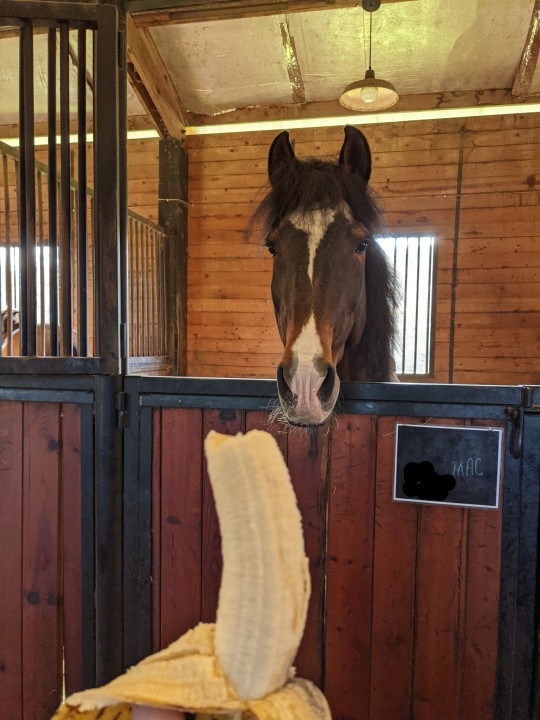

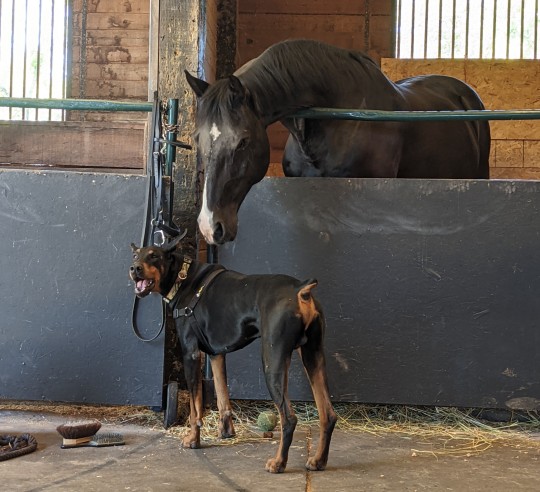
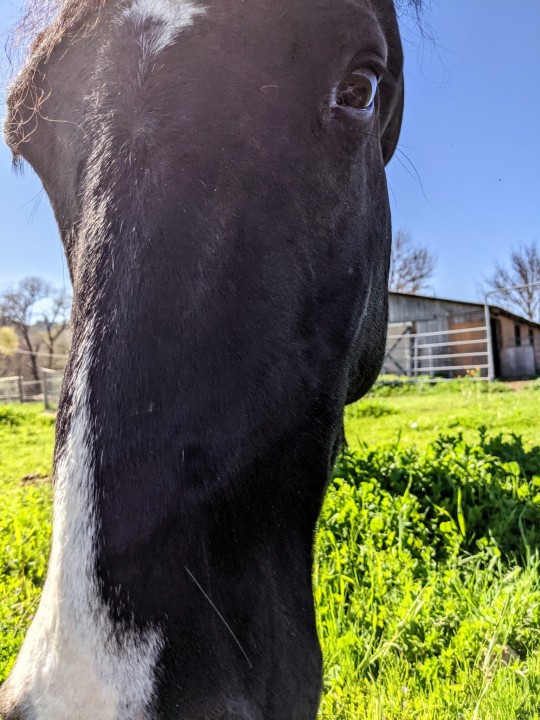
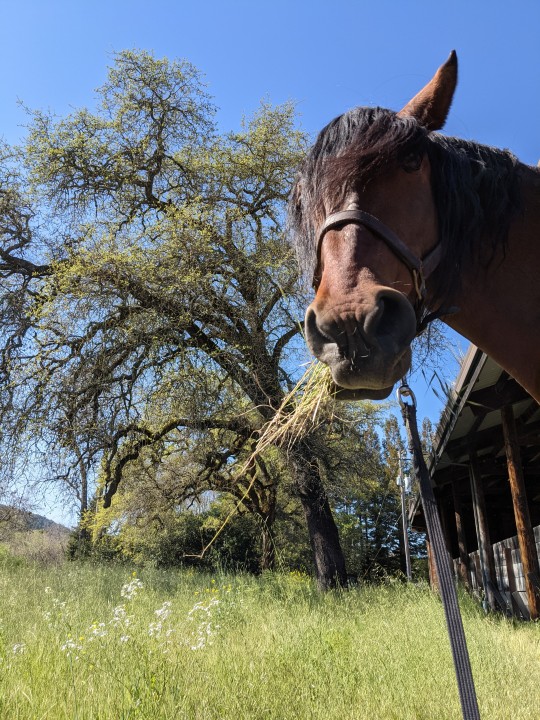
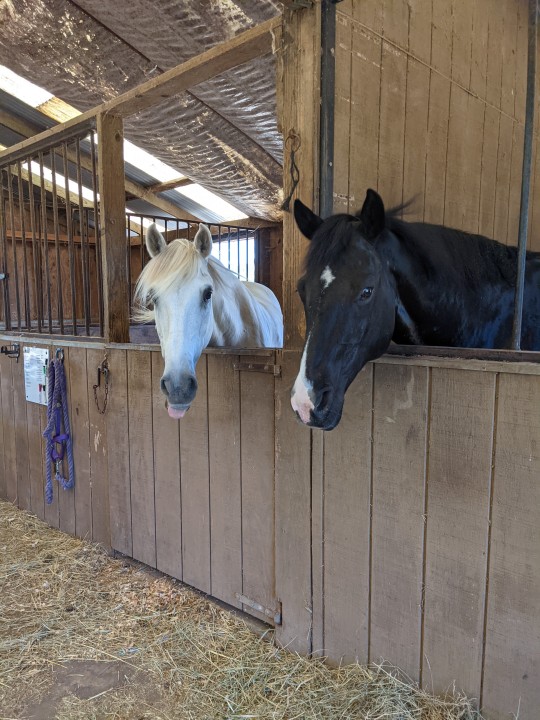
#oh my god this post is so long its impossible to edit im sorry if the pictures are showing up not two in a row#this is also the third time i've written out these tags because it won't save. love making posts#anyway. i have been WAITING for someone to give me an excuse to talk about this my most niche and beloved of topics#sorry this is......definitely more than was wanted lmao there's more where that came from#the ask tag#anonymous#kingsofrome
13 notes
·
View notes
Text
A Very Whovian February
Here we go again, another month over already. To nobody’s surprise whatsoever, I have continued watching way too many movies and tv show episodes in February as well. There weren’t as much as in January because university started again, but there were some. It totals in at 3 movies, 1 musical, and 116 episodes of tv. I was a bit heavy on the shows this month, less so on the movies, as you can see.
February is always a….peculiar month, if you will. It’s short, it’s half holiday and half university, it’s sort of winter but not anymore, and just really weird. What was particularly strange about this month however, was that even though I sort of committed myself to binging through Money Heist once more—and managed three episodes—I quickly went back on that decision and made another, rather bigger commitment: I decided to re-watch and finally catch up on Doctor Who. No one was more surprised at this decision than me, I believe.
I used to love this show, I used to talk about little else. Doctor Who dominated big parts of my interests for a few years. Through a combination of my brother watching the show and me discovering tumblr, I started watching it in 2012. That was right at the end of ninth grade and the beginning of grammar school. I was 16. I was awful. I talked about it constantly, and especially after I “converted” a friend and she ended up watching it too, it was a constant stream of talking about Doctor Who, always, all the time, everywhere. Which I now understand is annoying as hell. However, back then? People being annoyed with it and sort of shaming me for it? That—and the show losing what made me love it mostly through Moffat taking over—made me stop watching it. At some point I just—stopped. I didn’t talk about it, didn’t think about it much anymore, unfollowed a lot of blogs on tumblr who posted about it, and turned my interests elsewhere. I abandoned it.
For a while there it was also just a thing that I didn’t wanna touch. I watched it in a part of my life where I was awful and toxic and just not a really fun human being to be around, I think. At least I don’t look back at this time all too fondly. It was just part of a person who I wasn’t anymore, who I grew out of, grew up from, and largely also moved on from. It was a strange time. But it was always sort of at the back of my mind as something that I loved, something that brought me great joy and parts of which I really missed deep down. Once I got a Netflix account and it kept appearing in my suggestions, my resolve to not go back to it started to crumble and I ultimately decided that I could learn to love this show again and maybe be better about it this time around. And I also just really wanted to give Peter and Jodie a chance, because no matter how good or bad the stories are, taking on a role like the Doctor is a feat, and I want to give them the opportunity to impress me and make me like them.
Watching that very first episode of Chris Eccleston’s arc at the beginning of this month felt very similar to when I completely re-read all of Naruto last Spring. It felt like coming home, like re-discovering a long lost love. And I am loving it. I am enjoying this tremendously. The monsters are ridiculous, the CGI is hilariously bad, the masks and make-up are insanely cool, the stories are simple and honest and lovely and I just adore it so much. Russel T. Davis was such a wonderful show runner, his vision for the show was so….lovely and simple and human. There were so many brilliant moments in the first four seasons, the companions were fascinating and conflicting and challenging and the Doctor was fantastic and brilliant. And even now that I have already binged through most of Matt’s arc as well, I still appreciate this show. The first time around, I think, I wasn’t too fond of Matt as the Doctor because I really loved David and his take on it, but this time, I am really enjoying Matt’s way of navigating that sort of dichotomy of darkness and ridiculousness that the Doctor has. Matt is fun. David is still my absolute favourite, but I am enjoying Matt tremendously as well. The CGI might have gotten better, the stories bigger and bolder, and, what I felt the first time around, maybe lost a bit of it’s simple and human aspects, but it is still a show that makes you keep thinking, what if?
If you know me you know that I often say the words “ugh I hate people”. I hold the opinion on most days that we, humans, are the worst and we’re being for the most part terrible to ourselves, our environment, and that Earth would be better off if we all just died. However, on odd days in between, I am also like insanely fascinated by humans and by what we can do and who we are and all that. Watching nearly seven seasons of Doctor Who in one month and seeing the world and humans through the Doctor’s eyes, raised those odd days in between to a level able to compete with my humans-suck days. It’s basically 50/50 now, to be honest. If you boil my entire life down to a single conflict it’s that of HUMANS SUCK WE’RE THE WORST and HUMANS MY DUDE HUMANS WE HAVE SO MUCH POTENTIAL. Basically. Combine this binge-watch with the Opportunity Rover dying and you have me sobbing in a corner filled with hope for humanity and the need to change the world, because we could.
Oh.
Well.
Look at that. This is supposed to be a recap slash diary entry about this month and I have already spent all this time talking about Doctor Who. Can you imagine how annoying I was when I watched it the first time? Yeeeaaaah.
Anyway.
Watching Doctor Who was not actually the only thing I did in this month. I did a lot of procrastinating on a paper about witchcraft in Dutch art which I then finally finished the day before I had to hand it in, started university back up again in the middle of it, helped some friends on their moving day, hung out with other friends, went to a birthday, and, y’know, did things human beings do.
But—and I’m going back to Doctor Who again, sort of, I am so sorry—I also read a book. And not just some book. It was Good Omens by the two amazing gentlemen Terry Pratchett and Neil Gaiman. Watching four seasons of David Tennant being amazing on Doctor Who also made me re-discover my adoration for him. Not that I didn’t already know that, I mean I did just watch him in Broadchurch. He is just great and I love watching him in things. And then he started a podcast (David Tennant Does A Podcast With…, it’s amazing, you should all listen to it) and he’s on radio shows promoting it and he is just ever present. And there was press and information and stuff going around for the tv adaption of Good Omens in which David plays Crowley, so he was just constantly on my mind. So I said to myself, hell yes, you need to re-read Good Omens before the show comes out in May, so why not do that now. And I did. And it was fantastic. And because I am me, and I am weird, I forced myself to stretch the last 100 pages of the book over an entire week, so I could walk into every first session of classes at university reading this book (four of which being theology classes, which was very important for me to be reading this book in). I needed to mark my place as resident weirdo, because who else could it be?
So, in summary, I guess my month could also be called “David Tennant February”. I watch Doctor Who nearly every evening, listen to David’s podcast every Tuesday, think about Good Omens every day—yeah, February was very heavy on the David Tennant content. I am not complaining.
To end this on a less David Tennant-y note, and a more “these things actually happened this month” bit, February has also been a month of, I don’t know, resurrection? Is that a good word? Anyway—February has brought out (or back) more of who I truly am again. Most of it is the weather (thanks climate change, I’m sorry the planet is dying), the sun being out, the temperatures already clocking in above 10 degrees celsius. I am enjoying it tremendously. I am convinced that I might be half-plant because the sun just revitalises me so strongly. Seasonal depression just goes down the gutter once the sun is out and I can feel the warmth of Spring on my skin. I am alive. Another thing is that I stopped, just really stopped giving a shit at university about other people and what they think. I am using all the bathrooms, no matter what. I am going by Alex even in German classes. I don’t apologise for anything or justify my actions. I don’t care anymore. What I do care about, is that I finally got a date for my consultation with a psychiatrist here in the city. I am partially excited and happy about it, however I also, as soon as I opened the envelope, felt completely numb and detached because the date is in June and that’s still so far off, which I guess I knew would be the case, but having confirmation for it, was just a bit…much, I think. Knowing that my future is in the hands of other people is not a thought I like very much and having to wait for other people to have time for me in that perspective is just not a fun thing. But we’ll get there. Eventually.
I don’t know guys, this post is just full on stream of consciousness, just me blabbing on and on about things that I don’t think anybody really cares about. But like I said last time, this is supposed to be a sort of diary entry for my garbage brain to remember what I did in my life, so y’know, this is valid.
I’ll talk to y’all in a month. Be good out there, guys. Be good.
Bye.
#february#blog post#text post#diary#recap#monthly blog#doctor who#good omens#david tennant#writing#trans
2 notes
·
View notes
Text
More Than We Can Imagine
"More than all we ask
Than all we seek
All our hopes and dreams
You are immeasurably more
Than we can know
Than we can pray
All our words can say
You are immeasurably more"
- Immeasurably More, Rend Collective
Yes, I am going to start every blog post with an excerpt of a song. Yes, it’s probably going to be Rend Collective most of the time - I warned you last week that they’re my favourite band. I might change it up every now and then though, so keep an eye out!
Immeasurably More is a song I have known for years, but over the last few months it has come to reference this upcoming time I am spending in Falmouth, with the Way2Community. Since reading about the community online, to first emailing the community warden to express my interest, to making the 16 hour round journey in February to come visit and interview, to now, moving in and having been living here for a week and a half - in so many ways, God's abundance has been more than I could imagine.
The fact that I have the opportunity to spend a year or two focusing on God's call; the space is provided to help me listen, experience, and discern. Over our weekly structure, we are given time to experience ministry in a range of contexts, to experience living together as interns in intentional community, to study theology and get a taster of that aspect of possible future ministry, and to pray regularly together.
So what has each of those things looked like so far?
I am placed in two parishes with a shared vicar, both of which are significantly smaller and more rural than my home church. I had been expecting to find this somewhat frustrating, having thought that bigger numbers probably meant better. But after my first Sunday, where I went to the church service at both churches, I was more than happy to find my viewpoint changed. A service of less than ten people is tiny, yes, but that size gives a level of informality and intimacy that can be lost with higher numbers. And a service double that size felt like a nice balance - and it certainly makes it easier for me to learn names! The welcome and support I have already received from these congregations is one way I feel God's abundance.
The other ministry context I will be placed at to begin with is a homeless society, which will begin in a few weeks. Before beginning that, my thoughts are that it may be challenging, as an introvert in a context which will be new to me, but that I hope to constantly reassess my opinions, reflections, and assumptions as I serve.
Despite having been somewhat nervous about the task of 'adulting' as I call it so often, living in community with others has gone well so far and has settled into a nice pattern. Sharing household and cooking duties has gone fine, and no one has died or got food poisoning from my cooking yet! And another way I have felt God's abundance is in the incredible level of supportiveness of my gender - from those within the community and those beyond it, from those who already knew what non-binary gender was and those who have never heard of it before. Everyone has been entirely open to it and more than willing to try their best to use the right language.
I have not quite begun the theological course I will be sitting in on, but I have made a start on the prereading for the first week's lecture, and have begun for myself a glossary of all the new words I am coming across, so that I can follow the lecture with hopefully less of the difficulty that always comes with beginning to study a new subject. As well as this course, I have begun a course training local worship leaders, which promises to be very helpful to build on the experience I have had so far of leading services. I feel God's abundance in the reassurance I have that these courses will be challenging but still understandable and helpful.
As a community, we say morning and evening prayer every day together, and in these past few days I took my first turns to lead. Having used the same liturgy for compline for the last few months, I wasn’t too nervous about leading where the words were given for me to say, but I was somewhat nervous about leading the intercessions, where I had to say my own words. I wrote them out beforehand, and though I will become more comfortable with leading them as I do it more often, it was an okay start.
We also spend Thursday mornings together as a community, beginning with morning prayer, then after breakfast experiencing different types of prayer, followed by Eucharist. This Thursday, we did Lectio Divinia together, looking at the start of Isaiah 55, which is itself titled 'An invitation to abundant life'. That time spent reflecting together, as well as the time last Thursday, has continued making me aware of God's abundance.
God does more than we could imagine, more than we could dream or ask. As Mr Beaver puts it in The Lion, The Witch, and The Wardrobe, "Course he isn’t safe. But he’s good. He's the King, I tell you."
1 note
·
View note
Text
News Flash: Christian Supporters of Kenosha Killer are Christians | Religion Dispatches

With white evangelicals, America’s most pro-Trump demographic, currently in the news for sex scandals, committing violence, and defending violence, we once again find the meaning of Christianity being debated in the public sphere. The Christian crowdfunding site GiveSendGo is under fire, as it should be, for hosting a campaign to raise money for the legal defense of Kenosha, Wisconsin killer Kyle Rittenhouse after the seventeen-year-old domestic terrorist slaughtered two Black Lives Matter protesters and wounded a third with an assault rifle he was not legally old enough to possess in the state of Wisconsin.
As Roxanne Stone reports for RNS, Episcopal Reverend Nathan Empsall claims GiveSendGo’s hosting of a fundraiser for Kyle Rittenhouse is contrary to Christian values. Referring to the famous Beatitude “Blessed are the Peacemakers,” Empsall, whose organization Faithful America is hosting a petition to GiveSendGo to take the fundraiser down, reportedly said, “Crossing state lines to take up arms against Black Lives Matter is not making peace. And it’s certainly not siding with the oppressed or the marginalized.”
Liberal Twitter was also quick to jump on the bandwagon of questioning the Christian faith of those who support Rittenhouse.
As a Christian I'm horrified to hear that a so called "Christian" site raised $275,000 for accused killer Kyle Rittenhouse.
How can someone call themselves a Christians and support a killer?
— Grandma Grit (@grandmagrit) September 1, 2020
“Christian” fundraising site @GiveSendGo has earned over $250,000 for #Kenosha killer Kyle Rittenhouse.
So #evangelicals have gone from turning a blind eye to #racism to raising money for a murderer? And if you’re pro-life, why raise money for a killer? https://t.co/ije0yRKY3o
— AprilDRyan (@AprilDRyan) August 31, 2020
— Speak4tomorrow (@Speak4Tomorrow) August 30, 2020
Meanwhile, GiveSendGo cofounder Jacob Wells defended his decision to host the fundraiser, and told Stone, “as a platform, everything we do and what our platform delivers is Christ-centered.” I, for one, take him at his word—GiveSendGo is Christ-centered, with respect to how Wells and the numerous donors to Kyle Rittenhouse’s legal defense fund understand Christ. Further, I maintain that those of us who insist on adjudicating the Christianity of others in the public sphere are only serving to reinforce the Christian supremacism that is so baked into American society that too often we don’t even notice it.
This Christian supremacism, however, which is very much white Protestant inflected, overlaps heavily with white supremacism. Inasmuch as the two are intertwined, it’s impossible to dismantle the one without tackling the other. It may seem like an innocent reaction on the part of progressive Christians to denounce their authoritarian coreligionists as “fake Christians” or “not following the teachings of Jesus,” but it’s neither innocent nor accurate, as I have previously discussed on my blog and at Playboy.
The Jesus portrayed in the Bible is a complex and contradictory figure, and there’s nothing resembling a universal consensus among Christians about how to interpret the teachings attributed to him. Christianity has, since the fourth century, frequently gone hand in hand with imperial power, and the existence of liberationist strains of the faith does not negate the existence of these punitive, power-grabbing strains.
Finally, when Christians deflect from addressing the bad behavior of other Christian individuals and groups by writing them out of “true” Christianity, they’re essentially equating Christianity with goodness at the direct expense of nonbelievers and religious minorities who are afforded no equivalent deference. Christians are as capable of atrocities as members of any group and adherents of any ideology, and so long as polite American society proceeds as if this isn’t the case, polite American society is complicit in the normalization of Christian extremism.
I asked Jeremy Forest Price, assistant professor of education and chair of the Jewish Faculty and Staff Council at Indiana University – Purdue University Indianapolis, to weigh in on this issue from his Jewish perspective. He expressed concern with how refusing to understand that “true” Christians can commit horrible deeds “denies the violence Christians have committed—in the past and in the present—in the name of Christianity.”
He also observed that this denial “collapses the world into ‘true Christian’ (good) and ‘not true Christian’ (bad), so that anyone who is not Christian is lumped into the ‘bad’ category,” adding that this “flattens Christianity and denies the diversity that is inherent within Christianity.”
Further, Price maintains, “When this happens, because of the power and status of (white) Christians, the diversity of others’ traditions, beliefs, and practices is also flattened into ‘not Christian,’ reinforcing the idea of good versus bad.”
Let me be clear: it is deplorable that GiveSendGo is lending its platform to a fundraiser for Rittenhouse—a fundraiser that as of this writing has raised over $330,000. But the fact that the actions of those behind the site and those donating to Rittenhouse are deplorable doesn’t make these actions in any empirical sense “un-Christian.” Such categories can really only be debated internally, within the realm of Christian theology, and debating theology in the public sphere is counterproductive.
As an ex-evangelical, however, let me assure you that evangelicals find all sorts of biblical justifications for their misogyny, racism, and anti-LGBTQ animus. In any case, as far as our pluralistic society is concerned, both mainline critics of GiveSendGo like Empsall, and those Christians who support violence against people protesting for racial justice, are Christians.
In stating this, I am in no way defending the authoritarian Christianity in which I was raised; I am instead maintaining that Christianity is far from always benign. The very fact that I have to spell this out explicitly is as much a reflection of the extent to which Christian supremacism pervades American society as is the fact that we spend so much time debating Christian theology in the public square. If we want to move forward toward a more robustly democratic, pluralist future, we must “resist the temptation” to shout Fake Christians! when we come across toxic Christianity.
This content was originally published here.
0 notes
Text
Selves, in time
(5.10.20)
Late last night, I received a message from a name I didn't recognize. The notification bubble read,
"Hey Rachel, super random but I just saw this message that has been sitting in my message request box for like the last 7 years??? So sorry I never responded —"
I paused, trying to remember what message my younger self could have sent to a stranger on the internet. Instead of clicking on the message – which would mark it as read, which would make irreversible this confrontation of my past – I instead looked up this unfamiliar name on the internet, trying to guess from who they are now what I could have wanted to do with them all those years ago.
Seven years ago I still lived in Singapore, the city I grew up in, and in my memory I had scant contact with strangers on the internet on Facebook. The mental exercise proved futile.
I braced myself to read the message I sent in 2013:
"Hi <person>! I saw your comments on the post in the <college A> 2017 group regarding <college A>-<college B> cross admits...I'm wondering if you have any idea which school would be better for an (international) student...? I'm really torn between the two schools right now and both seem super awesome, but I can't fly over to the US to attend the admit weekends/<college A> days so I have no idea how to make my decision yikes :\ all help is appreciated THANK YOU :)"
Even now, on my third or fourth read, even after I've decided to share the message above with others in its blatant, barefaced expression, I feel my eyes skip over some of the words. I am reluctant to look at my past self squarely. Temporal distance separates us, and I wonder how I could have been so gauche, so sincere. It strikes me that embarrassment hinges on the perception of others, and is precipitated when, in a moment of self-awareness, I see myself as others see me. Or in this case, I see my past self through new eyes.
The feeling of self-mortification is not unfamiliar to me. I've kept a continuous streak of blogs from the age of 11 until now, and I joined Facebook earlier than I should have. My Goodreads account has traced 10 years of reading history. All that is to say, I have time and again stumbled into my past. Tracks all over the internet evince the evolution of my psyche.
Seeing my nieces' posts on Instagram gives almost the same effect. The people and platforms may have changed, but something feels familiar about the unbridled sentimentality they've afforded to friendship, that immoderate enthusiasm for pop culture, those unself-conscious attempts to memorialize feelings and moments that feel like they may escape us. As was the case for me, I suspect that this fervor correlates little with how long these passions will endure.
But I also recognize that I take their posts out of context: these were not crafted with an audience of older relatives in mind. Their audience of friends, peers, and admirers see them differently than we do. They participate in a conversation we are not privy to. In the same way, when I read the words of my past self, I can no longer hear the chorus of voices around her whose echoes have long died off. Perhaps the multiplicity of facades we erect is the cause of embarrassment: we are caught in the wrong context, with the curtains down. Perhaps the people who look on their past selves without embarrassment are the people whose selves have the most integrity across audiences and spanning time. Or perhaps they are the ones whose audiences never leave. [1]
As for me, things change.
For one, what seemed so uncertain years ago is now part of the irreversible, irrefutable past. In an post on Livejournal dating back to January 2013, I wrote,
I just wanna be somewhere unfamiliar and exciting and experience ~*adventure*~. WHO KNOWS, since I probably won't be studying overseas (or will I...? only time will tell haha sigh) y'know NOW IS THE TIME
This was four months before I made the decision to fly across the Pacific for college.
Retrospectively it feels like I walked only one path, but my old writing reveals a more variegated texture, reminding me that the past that feels so unequivocal now was at some junctures still in doubt, urgent, and insisting on resolution. Do I identify with past me? Can I take on her fears, anxieties, fragile hope? Futures forked endlessly beyond what I could imagine then. With time, we see potentialities collapse into realities.
Friends, hobbies, relationships, values - these too change, and at different tempos. I've had a strange, almost masochistic, addiction to the feeling of starting over for much of my adult life. There's something electrifying about wiping the slate clean, shedding prior associations, beginning again, knowing full well you may never again attain to what peaks you scaled before. Moving across the Pacific. Changing fields of specialization. Quitting jobs. Death and rebirth in its many forms. My adult life has been as much defined by the moments of renewal, of restarts, as it has been about the nondescript days in between that consist most of my hours. [2]
Once, home for winter break, I met up with friends from high school for dinner. Towards the end of a conversation which danced circles around who from our high school was dating whom (a subject I had no interest in), S set down her chopsticks and looked across the table to me. Doe-eyed, she asked, "Rach, do you think you've changed?"
I recall feeling my stomach drop, like she wanted me to say no, I'm still the person you knew before. As if any other response would signify the end of a beatific era of our lives, would make real the ephemerality of everything we held dear. And in spite of that I said, "yes, of course I've changed," followed by a feeble "but it's good change!" when I saw her dismay.
Not that it's possible to categorically pass judgement on something that can take on so many shades and textures. I wonder if the fact that older iterations of me come across as naive and crude means that I've grown, that something fundamental in me has changed. Or is it simply that in these intervening years, I've acquired a sheen of self-consciousness that moderates my intensity and sincerity? Have I become more authentic, or less?
In a past life where I conducted serious inquiries into Christian theology, I often daydreamed idly about the concept of eternity. What does eternity feel like? Would we still move, act, and exist as we know ourselves? People say that God resides outside of time, that to him there is no past, present, and future. So when he judges us, does he do so by a frozen slice chosen capriciously, an integral of our characters over time, or some other method he dreams up to aggregate all our persons? My time-bound mind cannot comprehend it. [3]
Perhaps the residue of these thoughts is why I'm still reluctant to disavow my past self entirely. She feels other than me – she reads different books, she has different friends, she likes and believes different things. But when I read her words I remember again that sincerity...
"How can you even understand it," I would answer, "if the whole world has long since gone off on a different path, and if we consider what is a veritable lie to be the truth, and demand the same lie from others? Here for once in my life I have acted sincerely, and what then? I've become a sort of holy fool for you all, and though you've come to love me, you still laugh at me..."
(BK)
[1] As Sartre said, hell is other people.
[2] You may be unsurprised to learn that Begin Again is the movie I’ve watched the most times.
[3] I recommend Einstein's Dreams by Alan Lightman, a wonderful and dreamy book about our odd relationship with time.
0 notes
Photo

Dear anon, it is extremely kind of you to display this sort of interest in my status as a creature who continues to exist as an entity separate from her terrible pointless blog! On the other hand, I can’t say that I have the same strength of belief in myself, because all my waking hours are consumed by work and can I truly be said to exist if I have no consciousness of my own existence? What is the ontological status of a life that does not experience itself? Actually no, this is an irrelevant argument because all I want to be when I grow up is a hyena decked out in gold who has zero capacity for introspection. I think the real problem has nothing to do with philosophical questions, it’s just that MY LIFE IS SUPER BORING AND I DON’T HAVE ENOUGH TIME TO DRAW COMICS :( Jesus Christ, you are telling yourself, all I do is put in a brief request for content and I have to sit through some obnoxious patter about how she could be bounded in a nutshell and count herself the king of infinite space, were it not that she has bad dreams.
More truly awful askbox answers under the cut, most of them from MONTHS AND MONTHS AND MONTHS AGO (I’m so sorry!!!!!) because I feel very rude making askbox posts so I put them off until this happens, and then I’m just a different kind of rude, so... I’m still working on being an adequate human being.

AREN’T THEY GREAT?! THEY’RE SO GREAT AND I LOVE THEM SO MUCH. Prometheus is so ornery and taciturn and thoughtful and HERMES IS A LITTLE SHIT ~but also surprisingly vulnerable~ kfl;dhg WHAT A FARCE, PAIRING RELATIONSHIP DYNAMICS ARE ALWAYS SO HILARIOUS. In my mental sequel Hermes runs an anonymous blog about Arcadia’s coffeeshop scene and is just generally contemptuous of every single establishment and every single roast offered within municipal bounds. Prometheus is like, Well should we move then? To someplace with better coffee? And Hermes is like ARE YOU FOR REAL? WHO WOULD I MAKE FUN OF THEN???

;____; Thank you, I will do my best! Honestly I think the blog might be so all over the place that even if I did update more frequently, there would be very little guarantee that the updates would be content that you would enjoy seeing... but you have made your petition, you must live with the consequences now. Let your regrets warm you in the hellish wasteland you will have wrouuuuught

She’s just SO PUT-UPON and I love that about her :’) I think whenever Troy comes up I try to force Polydamas into the conversation in whatever strained way I can because I love Polydamas so much, but in my head they share that kind of exhausted long-suffering deadpan attitude that I’m so fond of! They know better than anybody around them and they’re super fed up with it, but also they’re fundamentally decent people so FUCK THIS, I’M OUT OF HERE isn’t an option for them and therefore they must endure another day surrounded by idiots who don’t give them the credit they deserve. (This is not a mythologically rigorous reading, but leave me to my vices!)
Ooh what if they got together for regular vent sessions over tea, wow new headcanon accepted v v v

Anon I probably would have done the same. It always seems to be the case that certain objectionable folks are very charming in person, especially one-on-one, which I suppose is 1. part of why they hold the power they hold, and 2. a luxury they have because they’re not fighting for anything. Also if I’m perfectly honest I haven’t kept up with Harold Bloom’s opinions, if he’s changed his mind since his I MUST DEFEND THE DISCIPLINE AGAINST THEORY AND POLITICS days then I wouldn’t know about it! In the end I just hope that anyone he still has structural authority over is having an okay time of it all.

Ahhhh I’m so sorry anon, I didn’t read RoTK in an English translation so I’m afraid I don’t have firsthand recommendations! I have heard some good things about the Moss Roberts translation, though-- maybe leafing through that to see if it’s your cup of tea might work!
I find that food does the best job of soothing over diaspora guilt, but also I recognize that not everyone has that kind of wildly emotional relationship with food, so try having food next to the RoTK books and consuming both of them at once for maximum effect(???) Godspeed you anon, my thoughts are with you.

MY GOD THIS IS SO PRECIOUS thank you so much for the work you put into it!!! omg the background music is amazing and you guys have such fabulous delivery and the pacing is ACES ALL AROUND, would watch this anime ceaselessly *___* Thank you again, I am VERKLEMPT AT YOUR TALENT
I WANNA LINK IT SOME MORE TIMES IN A FUTILE ATTEMPT TO CONTAIN MY LOVE
SO
GOOD

Hahahaha anon I think it’s so great that you had this experience with LM and you were like hmm you know who I’m going to tell about this... that weirdo on the Internet that makes too many comics about Courfeyrac being a wreck of a human being. But that was absolutely the right choice to have made, because THE WEIRDO IS OVERJOYED TO HAVE HEARD THIS STORY! Tell me where your relationship with LM has gone since this message, have you accidentally fallen into the fandom and read a million fics? Have you moved to London? Have you MOVED TO PARIS? Are you standing outside of the dessert shop at 16 rue de la verrerie right now thinking about gay roommate shenanigans and unnerving the pastry chefs inside with your facial expressions???
Actually I think it’s just as well that the musical isn’t entirely helpful in keeping the names straight, because some amount of confusion obfuscates the fact that Bahorel is missing altogether-- and what’s any decent party without Bahorel! Nothing, that’s what. Too decent, that’s what.

You say this as an expression of support and I thank you for it, but know that I will consider this a blood oath if I get a tenure-track job and end up publishing a monograph. YOU SAID YOU’D READ IT. 400 PAGES ON THE NICETIES OF CHRISTIAN SALVATION THEOLOGY MAY BE AWAITING YOU IN YOUR FUTURE
#askbox#mythology#prometheus#hermes#HERMETHEUS STILL REPPIN#cassandra#polydamas#the english blues#romance of the three kingdoms#les miserables
21 notes
·
View notes
Photo






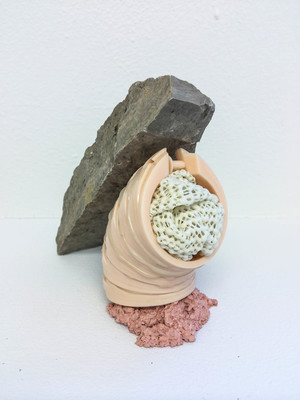
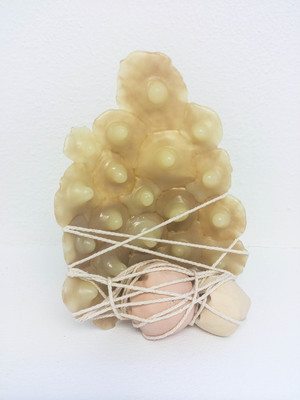

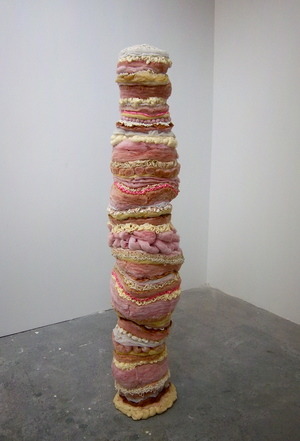

Lauren Francis Evans
All creative acts can be seen as intermediary attempts to narrow the distance between the material and the immaterial. The Greek term, omphalos, literally translated as navel, refers to various symbolic centers, believed to connect the earthly and the divine. Unique as a fingerprint, the navel is the first mark that life leaves upon the body - a scar which points to our origins. Physically, the curious depression (or mound) marks our link to the past as well as our individual existence apart from it.
This simultaneity is what I’m after. Prompted by urges and the allure of origins, my creative work addresses the body as a site of irresistible paradox and continually draws attention to the void of human longing. As flesh becomes a tangible metaphor, a subtle surreality manifests, resulting in an odd tension of visceral compulsion and grotesque desire in which the seemingly familiar is wed with the infinitely unknowable. (Images; Lauren Francis Evan’s work) (Text; Artists Statement)
Interview with MFA student for MFA research project. Posted on Lauren Francis Evans Studio blog.
How would you describe your process? How do you begin a new sculpture or drawing? How much do you plan before you begin making a new art object?
“I really don’t plan much at all. I used to make these large-scale site-responsive installations out of wire - and for those I would make scale models so that the form was determined ahead of time. But I’ve since moved away from that way of working. I was craving a more playful studio practice in which multiple projects would evolve at once. This was most likely due to the time and freedom that grad school allowed/encouraged/required of me. What a luxury. I’ve learned much about myself, my materials, and my work in general through this mode of working. Often projects begin on impulse - perhaps I’m drawn to a particular material, how it feels between my fingers. I poke at it and prod at it until it becomes something interesting. The forms tend to arise out of these impulses. And then certain things are revealed in their becoming. Don’t get me wrong - I think a lot about my work. I read a lot too. But most of my thoughts surround the creative act itself, rather than the motives behind it - for I believe the impulse itself is primary."
How did your work developed from undergraduate through graduate school? Did the themes, materials and concepts stay consistent throughout your education? If not, can you tell me a little about the path you took until you found your way to the current work?
“Sometimes I feel like it’s changed so much - but then ideas and forms reappear all the time. I’m still looking at the same types of artists. My work is still biomorphic in form. The scale has shifted a bit - in undergrad most of my work was large enough to walk through, often tunnel-like or cave-like, while now I primarily make objects at human scale (or much smaller), but I think I’m still dealing with most of the same ideas - the body as a microcosm, the flesh as a metaphor, a familiar ambiguity, an abject beauty, etc.. The materials have evolved, but are still referencing the flesh for the most part. I used to make a lot of gridded wire armatures (which I would leave exposed) and those have pretty much vanished, but mostly due to the shift in scale and form. Like I said above, my studio practice has become much more playful. Much of this was due to the sentiment of my 3-yr interdisciplinary MFA program which insisted that I try all kinds of things and not get stuck in my ways. The space I had in grad school allowed me to start something, abandon it, revisit it, reorient it, and turn it into something else entirely. Many things got revisited, but lots of things also went in the dumpster when I finished, simply due to lack of space. While in grad school I became much more comfortable working in 2 dimensions - in undergrad I couldn’t imagine making anything but sculpture. Working with collage provided a much quicker way to work, which then led to making small assemblages, and then the larger assemblages which I am mostly making now.”
In your artist statement you talked about curiosities of human experience as your main influences for your work. Is this tactile idea of boundaries, bodily holes and desire something that has always influenced your work? What are some of your other influences and enthusiasms?
“Yes, I think it has always been an influence. It goes back to those urges and impulses of childhood - picking my nose, poking at blisters, popping pimples, trying to flit my belly button inside out - all those weird things that we’re taught to stifle as we age. I’m influenced by philosophy and theology - my Christian faith permeates my work in ways I can’t even understand - but am always trying to figure out. I believe that all creative acts are efforts to comprehend our origins (however abstract) and are attempts to narrow the distance between the human and the divine, the here/now and the beyond - so I can’t escape that theological component. I think it’s a human thing (rather than a religious thing). I also love kids - their curiosity and enthusiasm is a huge influence.”
What is the intent of your work? Do you see it functioning as a conversation, a statement, or in some other way?
“Good question. I’d say more of a conversation than a statement. I don’t see my work as having an agenda of any kind or serving any instrumental purpose. I’m more interested in talking about the whys of making at an ontological level. Why is there something rather than nothing - why make anything at all? My work comes out of these questions. So the works themselves are wrapped up in paradox - the simultaneity of opposites. I’m asking questions - hoping the work will make others question - as opposed to providing answers."
How do you see your 2-dimensional and 3-dimensional working together? Is one important to the other? Or, are they completely separate approaches?
“They inform each other. I think of my 2D work in a very sculptural way - so they’re not much different for me from the 3D work. The collages (and drawings) are quicker, definitely (except for the Decreation collages!), and they enable me to work out how I want my work to feel. They aren’t sketches for sculptures, but sometimes after making a collage, I will then attempt to make a sculpture with a similar feeling. There’s a certain elegance to the 2D work that’s been more difficult to achieve in 3 dimensions - but I’m working on that.”
How do you see gender operating in your work? It seems from looking at the work that gender would be a theme but I didn’t see it mentioned in your statement. Is it less about gender, but rather about the body itself?
“Correct - definitely less about gender and more about the human experience - embodiment and incarnation as a human thing, and not so much a gendered thing. That’s a big can of worms, and I think my work is about something more broad, so I usually steer the discussion away from gender. But of course a lot of the materials I’m using are typically used by females - the hair extensions, the false eyelashes, even the fashion magazines I use for collage - so I understand why the conversation may go there - but for me it’s about longing in a much deeper sense, not just the longing to be beautiful, but that’s part of it too. My preoccupation with holes is often read as psychosexual - and sure, that’s part of it, but for me holes point to this broader human void of longing that I think men can relate to just as much as women. I have noticed a difference though in how men/women respond to my work - I made a sculpture once that read as ovaries to a lady professor and as balls to a male professor - maybe that’s the kind of ambiguity I’m after - we’re not so different, really. That’s also why the navel is the hole that fascinates me most. It’s this hole (or bump!) shared by us all which points to our origins.”
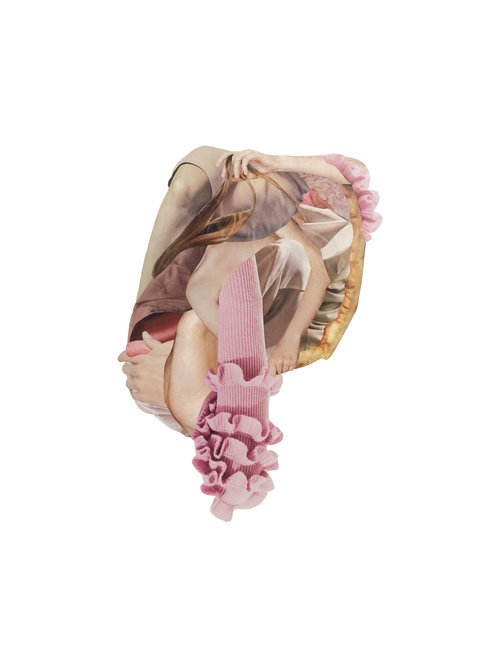
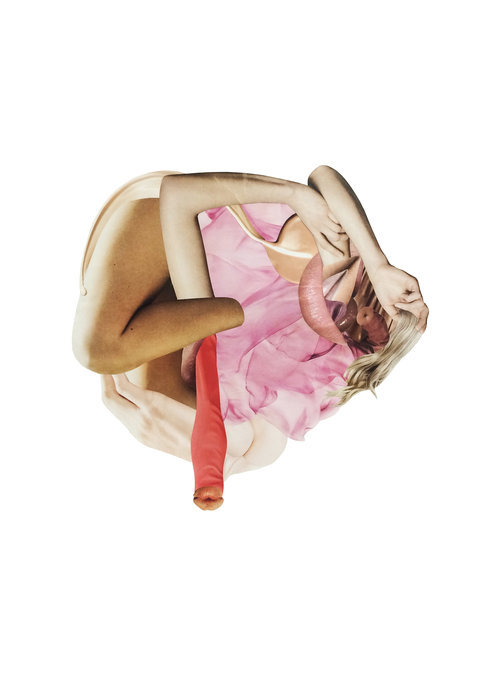




Lauren Frances Evans ( Images of 2D Collages for future reference)
0 notes
Text
I’ve read your post about the difference between Ne and Ni, and I have some doubts… In every test I did, INFP was the result, and I really identify with the description. As for your post, I thought while reading about Ne "This is so me" until the last point. It said something like that, if your original plan doesn’t come out as planned, Ni users are “stuck” while Ne users generally adapt more easily. In this case, I really go into panic attacks when (important) plans don’t go as expected, and I give up on everything and think “Oh God, of course it’s gone bad, how I could ever imagine it could end up differently? I’m such a loser” etc. I need to say that I suffer from severe depression, anxiety, and other mental illnesses I won’t say here. I’ve been struggling with them for many years, since I was a young teen - now I’m 22. How does an INFP express anxiety and depression? Of course, everyone’s experience is different. But I thought… maybe I could be in a Fi-Si loop? Because when I need to try something new, I always think: “Well, if this is gone bad in the past, there’s a chance that it’ll be the same now… So I won’t take any chances.” Also, I need to say that the second result on my MBTI tests has always been ISFJ. Maybe I’m mistyped or is it a common problem for INFPs? Thanks for reading this. I really enjoy your blog, by the way!
(Sorry for my English, I’m not a native speaker. I hope this isn’t a problem.)
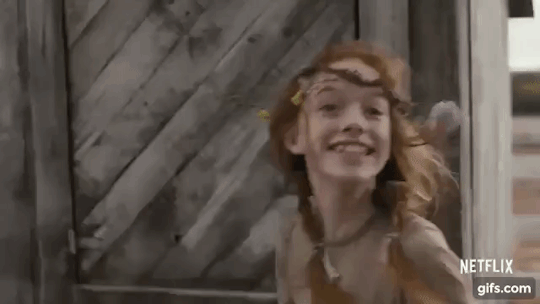
Your English is excellent, no need to fret. :)
It’s possible your “freaking out” over plans going badly ties in with your inferior function – using extroverted thinking for you is a draining process, using a function that you aren’t comfortable manifesting quickly in daily life (as a social and cognitive introvert); in this way, your extroverted counterparts (ENXP) have an easier time rapidly changing gears mid-process; as extroverts, they are capable of responding to situations as they happen, or even anticipating them in the near future and responding in advance.
The “I’ve failed at this before, why even believe it can go better this time?” is a common problem with lower Si-users; they may possess the Ne excitement to set out to try again, then find their confidence waning while mid-process, and then question themselves and have a melt down.
(If it makes you feel better, I have a melt down at least two times during writing a novel – right at the start and somewhere near the end, when I freak out and become convinced I cannot do this. I have done it, finished a book, wrapped everything up, and had a coherent plot at the end, a dozen times, but my lower Si is so truly, devastatingly LOUSY that it freaks out on me, tells me I’ve forgotten important details, and “can’t rationally remember” that it’s always fine. And when it isn’t fine, I have always been able to fix it.)
Fear isn’t rational; it’s emotional. Panic attacks (oh, how I know thee!) aren’t rational, they’re emotional. But how do you talk yourself out of them? That, usually, gives you some indication of your true type; Te often cites real life examples or statistics to calm itself down (I’m afraid of this happening… but it almost never happens, let’s go look up how many times it’s been documented to happen and calculate the odds of it happening to me, and then come up with a proactive plan just in case, which involves something I can do about it, in advance! Ne/Te), whereas Ti seeks to understand the thing completely, from the inside out, in order to grant self confidence in dealing with it (I’m afraid this might happen, so I’m going to analyze what I know about it, and learn all I can about it, so I feel competent in dealing with it, should it ever arise).
Anxiety and depression manifest differently in the same type, but it’s common for a Fi to withdraw from other people and be unable to talk about the feelings that drove them into depression, or how they truly feel; INFPs in particular may turn to artistic expression in order to deal with their depression or sadness – this is how the world has wound up with some very “emo” poetry, sorrowful songs, or dark paintings. Often, a depressive INFP is a looping INFP – they’re cycling between their intense feelings (Fi) and their past experiences (Si), which stagnates them and makes them incapable of moving forward – since Ne/Si is always wanting to move forward, to achieve greater ends, to get away from too much sameness, this stagnation further compounds the depression, and causes them to lose all contact with Ne – without Ne, their creativity, idealism, and driving force, the INFP collapses into intense internal reflection and melancholy, which can only break when re-engaging Ne (often through dramatic new experiences, discovering something completely new, meeting new people, or forcing themselves to push through, accept that, “Well, today I’m having a bad day… but I’m going to find a way to make it okay” and pull up their proverbial boot straps.
With regards to mistyping, in my experience with INFPs and ISFJs:
ISFJs are much more in tune with others’ feelings, needs, and wants than INFPs, who are better at understanding their own feelings than the ISFJ.
The INFP is sometimes far more blunt, and inclined to write people off who offend their sense of moral identity (these people don’t mesh with me, I want nothing more to do with them) than the ISFJ, who tries to see things from others’ perspectives and remain tactful even when they dislike someone.
The ISFJ is more in tune with concrete reality, and far better at detail retention than the INFP, who inclines more toward a big picture focus and loses sight of the details.
The INFP is more emotional, but less visibly so, than the ISFJ, due to introverted feeling (Fi) filtering everything before it reaches Ne (how does this align with who I truly am and my strongest ethical views? - Fi; and what new ideas does this present to me, and how does it tie into everything else I know? NeSi); whereas the ISFJ filters everything through “what is my experience with this?” followed by “what do I think about it ethically, and what do others think about it?”).
ISFJs are better able to handle daily conversations and those relating to tangible things (books, movies, relationships, friendships, where they went, what they saw, what they ate, who was there, who wore what, etc); where INFPs are more interested in intangible things (what is the meaning of this, what does it say to me, is there a broader connection to make, what psychology, theology, philosophy, worldview, etc., is involved in this thought?).
Hope that helps. I’m glad you like the blog. :)
- ENFP Mod
PS: To save someone from asking, ENFPs in depression are typically shut off from their extroverted dominant function, which means they’re either stuck in a semi-unhealthy Fi state (wallowing in their feelings) or falling into inferior Si, which is pessimistic and tends to believe “nothing will ever change, and I’ll be stuck in this place, with these people, or in this state of mind… forever.” Typically, my most intense periods of depression (and I deal with them… a lot) relate to a lack of purpose, being unable to be creative on a level that sustains my Ne-desire for “newness,” being “stuck” in a situation, relationship, or mental place where I cannot progress forward, or are triggered or exacerbated by the cruelties of life. Like most people in depression, I lose my sense of self, my creativity, my ability to find new ideas or have any interest in exploring something from multiple perspectives, I often experience “brain fog” where it feels like too much effort to translate my thoughts (scattered, incoherent, and often dark) into writing, and I lose interest in things. The trick for me is to either accept my depression and work toward lifting it (by engaging with people, forcing myself to socialize, and actively seeking out new things, rather than sitting home brooding) or by finding something so new and exciting that it snaps me out of my funk into the present.
PPS: The new take on Anne Shirley, on CBC (Canada) and coming to Netlflix in May is the perfect example of how an INFP (Anne) deals with depression, panic attacks, and abuse. It’s simply called Anne, and so far, the first two episodes have dealt with painful Si flashbacks, which send her into panic attacks (to the point where she cannot breathe, and her hearing blurs); she’s also extremely Fi in that she shares what really happened with no one. And she copes by creating elaborate Ne-fantasies to avoid real life and distract her from her pain. It’s a sublime show all around. A good contrast for an ISFJ dealing with a negative past is in the live action Cinderella, where she (Si-dom) chooses to focus on happy memories from the past, rather than create elaborate fantasies.
93 notes
·
View notes
Text
I just feel so sorry for Job. Most of his book is his friends telling him that if he was a better person, nothing bad would ever happen to him, but he did nothing wrong in the first place. Sometimes bad things happen to good people, and that shouldn’t shake our identity or our values as a person.
#may move to a future Theology blog if I make one#theology#bible study#job#book of job#Christianity#Jobs friends really be like oh you're depressed? Then juST stoP beinG sAD! and that makes me angery
7 notes
·
View notes
Link
President Donald Trump is planning to withdraw the United States from a three-decade-old arms control treaty with Russia. If the White House follows through, it could imperil US relations with Moscow and European allies in the near future — and increase tensions with China down the line.
The Intermediate-Range Nuclear Forces (INF) Treaty was signed by President Ronald Reagan and Soviet leader Mikhail Gorbachev in December 1987. The agreement prohibited Washington and Moscow from fielding ground-launched cruise missiles that could fly between 310 and 3,400 miles.
Both countries signed the agreement as a way to improve relations toward the end of the Cold War. However, both sides still could — and since have — built up cruise missiles that can be fired from the air or sea.
The problem is that Russia has clearly violated that agreement in recent years. In 2014, the Obama administration blamed the Kremlin for testing a cruise missile in direct violation of the accord. (Russia says the US has violated the agreement too, a charge the US denies.)
Russian President Vladimir Putin has continued to improve those weapons; in March, he even made the striking claim that Russia will soon have a nuclear-powered cruise missile that can reach the United States.
“Across two administrations, the United States and our allies have attempted to bring Russia back into full and verifiable compliance with INF,” a senior Trump administration official told me, speaking on condition of anonymity to discuss sensitive ongoing talks.
“Despite our objections, Russia continues to produce and field prohibited cruise missiles and has ignored calls for transparency,” the official added.
President Ronald Reagan and Soviet General Secretary Mikhail Gorbachev sign the INF Treaty at the White House in December 1987. Universal History Archive/UIG via Getty Images
And it seems the Trump administration has had enough. “[W]e’re not going to let them violate a nuclear agreement and go out and do weapons, and we’re not allowed to,” Trump told reporters aboard Air Force One on Saturday.
Experts are divided on whether leaving the treaty is a good or bad idea. Some say it could lead Russia to develop more of the weapons and fuel an arms race, while others say it unnecessarily handicaps America’s military prowess.
Gorbachev, the Soviet premier who signed the treaty with Reagan, called Trump’s announcement “unacceptable” and “very irresponsible.”
The US has yet to formally notify Russia that it will leave the agreement, which would start the process to officially withdraw from the accord six months later. But there’s one person — National Security Adviser John Bolton — who will likely smile if it happens.
Experts I spoke with unanimously agreed that Russia has violated the agreement and that the US needed to do something about it. Where they differed, though, was over how to do that.
The answers fell into two camps: those who felt the US should try to coerce Russia into compliance with what they say is a historic and useful treaty, and those who said the US should leave the treaty entirely because it’s hurting America’s security.
Let’s take each in turn.
Why the US should stay in the INF Treaty
Having the treaty in place reduces tensions between the US and Moscow, some experts say, mostly because both countries destroyed about 2,600 ground-based cruise missiles in total along with their corresponding launchers as a result of the treaty.
That was particularly important for Washington’s allies in Europe, who were directly threatened by Russia’s stockpile. “Living in Europe, they care about INF more than anyone because they are within INF ranges,” Heather Williams, an arms control expert at King’s College in London, told me.
But it seems Trump made the announcement that he would be pulling the US out of the treaty before consulting with America’s European friends — and they’re not happy about the decision. German Foreign Minister Heiko Maas on Sunday called it a “regrettable” move, saying that the treaty is “an important pillar of our European security architecture” and that the US decision “raises difficult questions for us and Europe.”
However, European leaders have never publicly criticized Russia for its treaty violations, thereby putting little extra pressure on Moscow to comply.
Russia shows off a cruise missile at the International Maritime Defense Show in St. Petersburg on June 28, 2017. Olga Maltseva/AFP/Getty Images
Experts also point out that leaving the agreement will do little to make Russia want to abide by it. “Punching out isn’t going to bring them into compliance, and now lets them justify a buildup even more while painting us as the bad guys,” said Vipin Narang, a nuclear expert at MIT.
These are legitimate worries. It’s possible Russia could have been even more brazen in its development of ground-based cruise missiles, and that remaining a signatory in the agreement somewhat curbed Moscow’s ambitions. But if the US tears up the deal, Russia could openly and more quickly build up its arsenal — all while claiming the US made it okay to do so.
That could kick-start a new arms race between the two countries, where each side would try to one-up the other with better weaponry. Washington and Moscow would grow their arsenals of ground-launched cruise missiles. That, along with other issues in the relationship, could potentially put both countries on the path to war, many worry.
There are ways to pressure Russia to comply with the agreement, experts told me. Here’s one idea from James Miller, the top Pentagon policy official from 2012 to 2014: The US should develop cruise missiles that carry nuclear weapons and can be launched at sea.
Remember: The INF treaty doesn’t prohibit the US from fielding and testing cruise missiles that can be shot from planes, ships, or submarines — only land. Increasing America’s stockpile of those other weapons, then, might pressure Moscow financially and militarily to come to the table to discuss a way to improve the accord for both sides.
Russian President Vladimir Putin poses for a picture inside a plane that can carry cruise missiles on August 16, 2005. Vladimir Rodionov/AFP/Getty Images
But if Trump leaves the deal, the US will lose any and all leverage with Russia on this issue.
Why the US should leave the INF Treaty
Other experts are equally passionate that leaving the agreement was long overdue. The main reason, they say, is that America should have these weapons if other countries won’t stop building them.
“[T]here was no hope of getting Moscow to return to compliance,” Matthew Kroenig, a nuclear expert at the Atlantic Council think tank, wrote in a blog post on Saturday after Trump’s announcement. “It doesn’t make sense for the United States to be unilaterally constrained by limits that don’t affect any other country.”
Having ground-launched cruise missiles may not actually be all that useful for combating Russia nowadays, these experts say, but they are necessary to fight off the growing military threat from China. That’s an argument that John Bolton, who became Trump’s national security adviser in April, made for years when he was a pundit outside of government.
The case has merit. According to a 2018 Pentagon report, Beijing has vastly improved its cruise missile arsenal, which would likely make it harder for US warships to approach the country’s coast during a fight. Experts say that puts the US at a massive disadvantage and should be promptly reversed.
Eric Sayers, a defense expert at the Center for a New American Security, told me it wouldn’t be too hard to place cruise missiles on the ground near China — like in Japan or the Philippines — as long as those countries agree to it. The US could also deploy longer-range cruise missiles along China’s periphery to fend off Beijing’s ships.
What’s more, he continued, those weapons are cheaper overall than their air or sea variants because they are usually launched from trucks. Planes, ships, and submarines are complex to build and very expensive to maintain, making land-based cruise missiles a good option.
In effect, those who want the US to leave the INF Treaty say the US is missing out on a vital weapon to safeguard the country. “There’s a reason China and others have them and there’s a reason Russia is developing them,” says Rebeccah Heinrichs, a nuclear expert at the Hudson Institute. “Those who confidently insist we don’t need them are spitballing.”
But while Bolton’s argument in this case has merit, this decision is also part of a much broader effort by the Trump administration to undo years of arms control work — and it all just so happens to correlate with Bolton’s time at the White House.
Bolton has been very open about his dislike of arms control agreements for years. In his 2007 book Surrender Is Not an Option: Defending America at the United Nations, he spends dozens of pages railing against what he calls the “arms control theology” that “had been painstakingly developed during the Cold War, and kept on life support during the Clinton presidency by devotion and prayer rather than hard reality.”
National Security Adviser John Bolton is not a fan of global arms control. Here he joins President Donald Trump during an Oval Office meeting on May 22, 2018. Oliver Contreras-Pool/Getty Images
It’s therefore no real surprise that the Trump administration has withdrawn from multiple arms control agreements during Bolton’s six months as national security adviser. For example, in May the US withdrew from the Iran nuclear deal, which the Obama administration put in place to constrain Tehran’s path to a nuclear weapon. But Bolton — and Trump — felt that it didn’t go far enough, and ultimately decided to pull out of the deal.
Bolton is currently in Moscow to meet with top Russian leaders, and this issue will certainly come up. Arms control came up when Bolton was in Russia four months ago, when he and his counterparts discussed extending the New START nuclear treaty between the United States and Russia for another five years. That agreement came into effect on February 5, 2011, with the goal of limiting the size of the American and Russian nuclear arsenals, the two largest in the world.
At the time, three sources familiar with Bolton’s thinking told me that he was “very upset” he had to discuss extending the agreement when he spoke to Putin about it. Before joining the administration, Bolton called the accord “unilateral disarmament” by the United States.
Some experts worry that Trump’s announcement about the INF Treaty means New START may soon die. Bolton, however, would likely celebrate that move.
Original Source -> Trump may soon kill a US-Russia arms control deal. It might be a good idea.
via The Conservative Brief
0 notes
Text
But where can wisdom be found? And where is the place of understanding?
Man does not know its value, Nor is it found in the land of the living. The deep says, ‘It is not in me’; And the sea says, ‘It is not with me.’
Pure gold cannot be given in exchange for it, Nor can silver be weighed as its price. It cannot be valued in the gold of Ophir, In precious onyx, or sapphire. Gold or glass cannot equal it, Nor can it be exchanged for articles of fine gold. Coral and crystal are not to be mentioned; And the acquisition of wisdom is above that of pearls. The topaz of Ethiopia cannot equal it, Nor can it be valued in pure gold.
Where then does wisdom come from? And where is the place of understanding? Thus it is hidden from the eyes of all living And concealed from the birds of the sky. Abaddon and Death say, ‘With our ears we have heard a report of it.
God understands its way, And He knows its place.
For He looks to the ends of the earth and sees everything under the heavens. When He imparted weight to the wind and meted out the waters by measure, when He set a limit for the rain and a course for the thunderbolt, then He saw it and declared it; He established it and also searched it out.
And to man He said, ‘Behold, the fear of the Lord, that is wisdom; And to depart from evil is understanding.’
~Job 28:12-28
#may move to a future Theology blog if I make one#earlier in this chapter we get a beautiful description of someone mining for precious ore#the description shows how real and gritty and difficult it is#and I think the chapter should be read as a whole#job#book of job#bible study#theology#bible#Scripture#Christianity#Judaism
5 notes
·
View notes